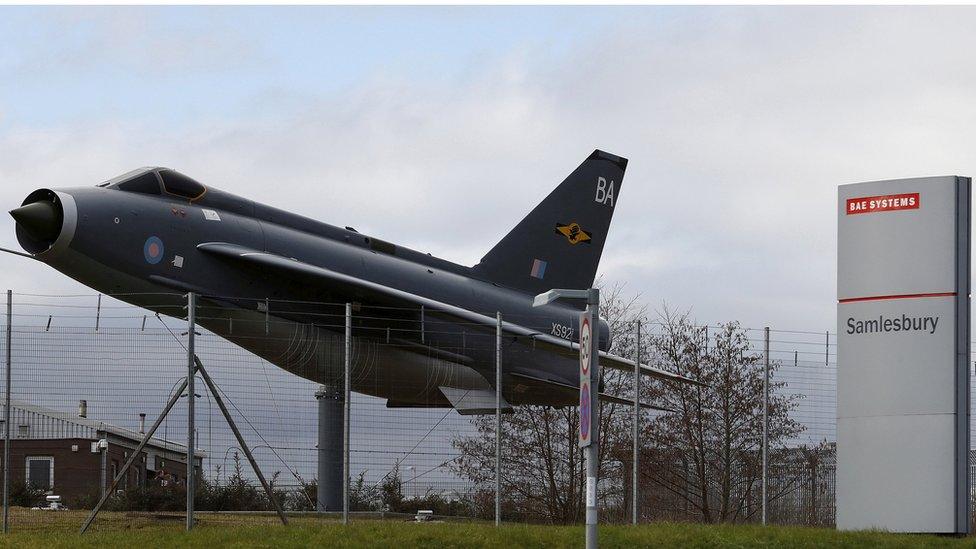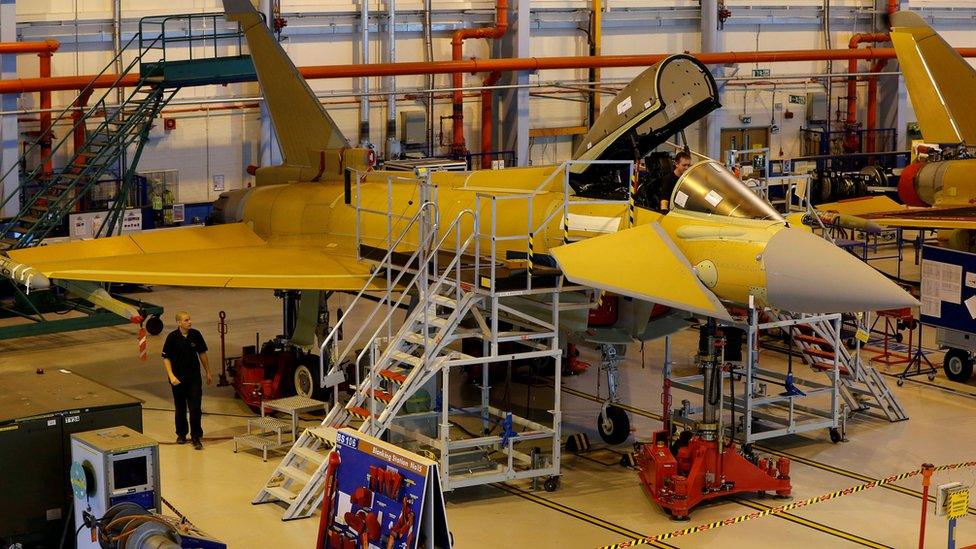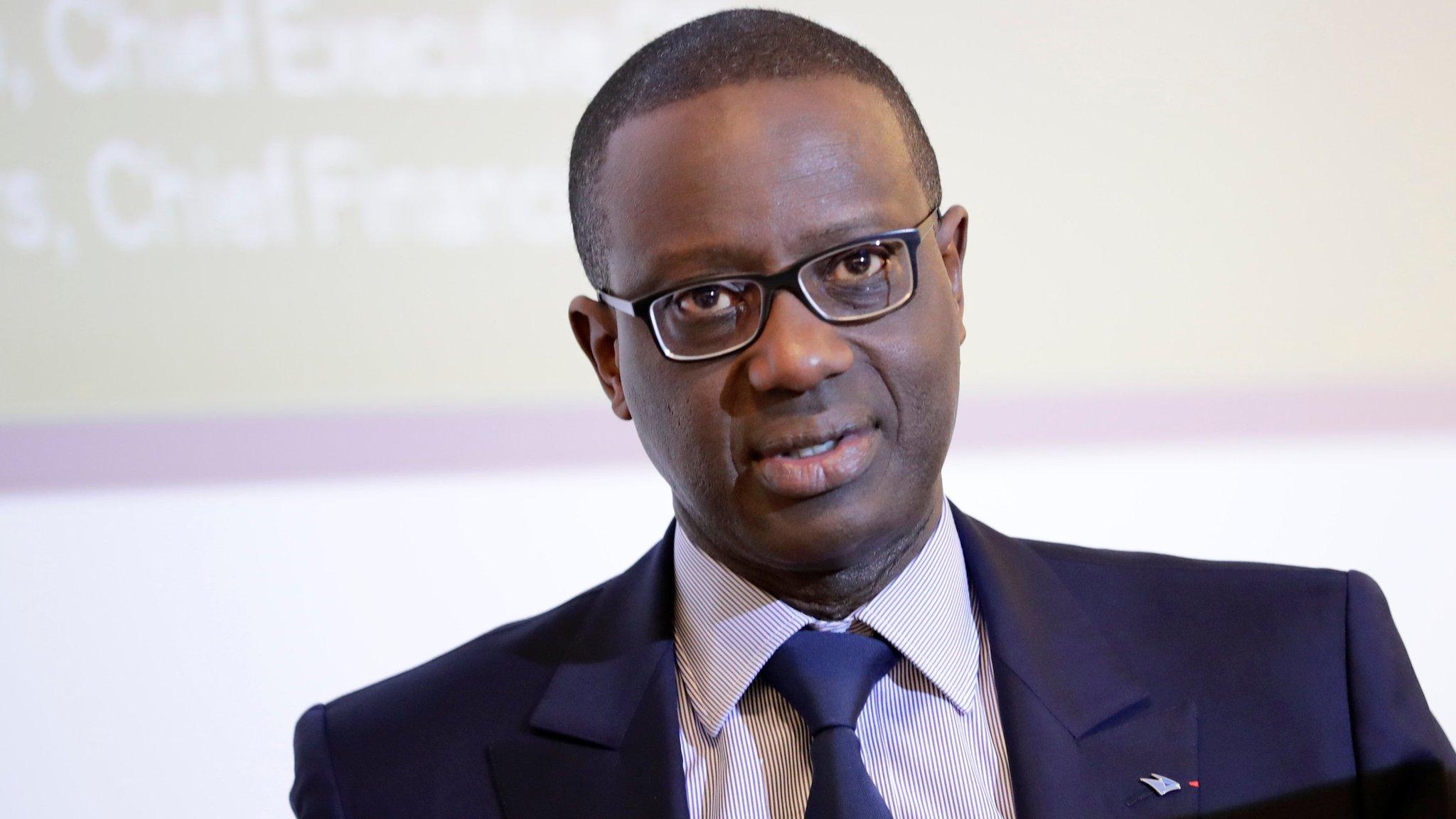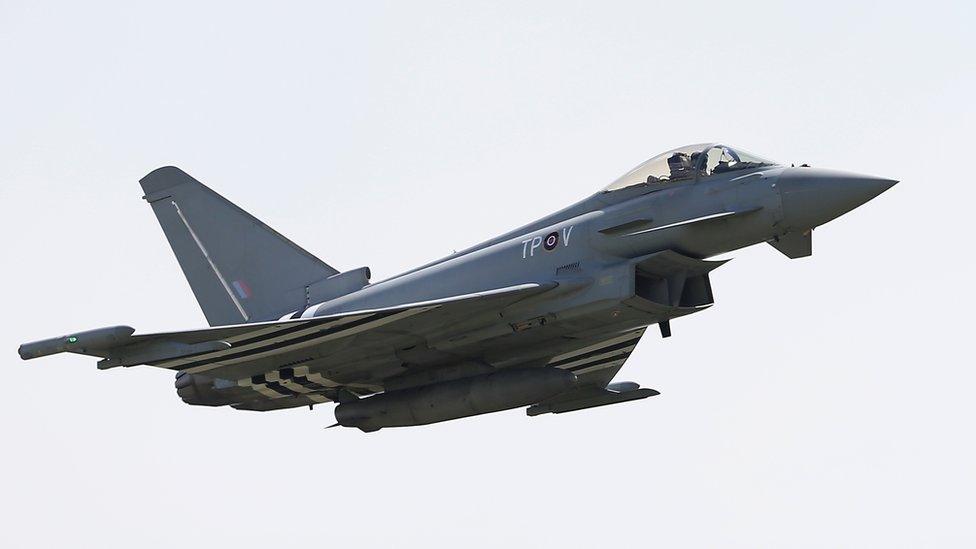BAE Systems will go to the Saudi ball
- Published

BAE Systems is one UK firm that will definitely not pull out of next week's business conclave in Saudi Arabia.
The Kingdom bought a sixth of everything the UK defence contractor sold last year and BAE employs 6,000 people on the ground there.
The rock stars of the business world are shunning the spotlight on Riyadh after Jamal Khashoggi's disappearance at the Saudi embassy at Istanbul.
But the BBC has been told that BAE officials will make the trip.
To be fair to BAE, selling military hardware is not a normal business. It is conducted with the express approval of the UK government.
The UK wants to have a national aerospace contractor like BAE - both for national security reasons and for the nearly 40,000 high-skilled, high-paying UK jobs it creates.
But a company that size cannot live by the bread the UK government gives it alone. Since the mid-1980s, defence spending as a proportion of UK national income has fallen 60%.
To keep a British flag flying in the world of defence contracting, you need other customers. Over that same 30-year period, Saudi Arabia has been one of the UK and BAE's most loyal - and most controversial - customers.

BAE wants to sell Typhoon fighter jets to the Saudis
The infamous 1980s al-Yamamah series of arms sales to the Kingdom was described at the time by the Financial Times as the "biggest sale of anything by the UK to anyone".
It also became the subject of a Serious Fraud Office investigation into allegations of corruption and bribery that was eventually abandoned in 2007, thanks to pressure from the UK and Saudi governments, who cited national and international security interests.
It was also well known that the French defence industry was sniffing around a new mega-contract at that time.
Oil dependency
Therein lies the basis of much of the developed world's arms industry approach to the vexed question of selling weapons to other countries.
If we don't sell them, someone else will.
Donald Trump underlined that point this week when he said that he was "against" cancelling a $110bn order for US hardware, not only because it would affect US jobs, but because he knows that China and Russia would happily step into the breach.
I will leave it to my colleagues in foreign news to provide analysis on the role UK weapons and training are having on the ground in Yemen. For businesses involved - such as BAE Systems - the decision on whom they sell arms to is one that has been outsourced for decades to the UK government.
Saudi Arabia has a very big problem of a very different nature.
The stuff it makes, it may one day be unable to sell. More than 200 billion barrels of oil still lie beneath the desert. The growing international clamour to turn away from fossil fuels and their plastic by-products mean they need to learn to do something else - fast.
The Kingdom hired top advisers McKinsey to come up with an answer and it was cut and pasted into Saudi's "Vision 2030" - a bold plan to move away from its 90% oil dependency.
Saudi offered the world a quid pro quo. We will sell you some of the family silver in the form of 5% of the world's biggest oil producer, Saudi Aramco, as well as invest in cutting-edge foreign companies such as Uber, WeWork and UK tech darling ARM Holdings.
In return, the rest of the world will help us develop other industries, such as chemicals, tourism and finance.
The plan has already hit problems, as the sale of the Saudi Aramco stake has been delayed amid concerns around transparency and the threat of legal action from future US shareholders over climate change and 9/11.
This latest episode has made Saudi Arabia's new-found investors run for cover, making its Vision for 2030 further out of sight.
- Published17 October 2018

- Published9 March 2018
